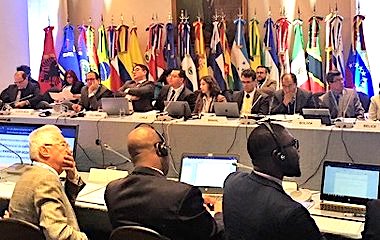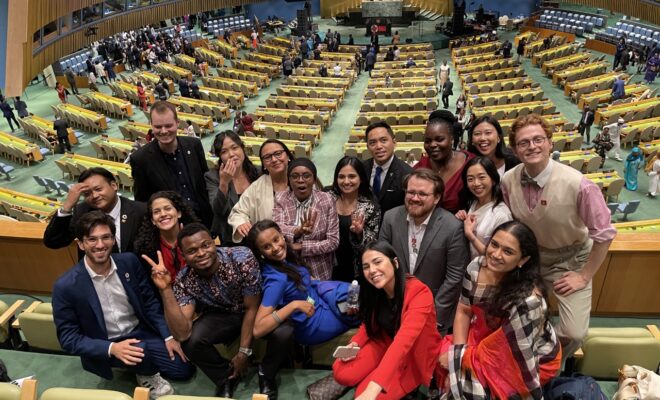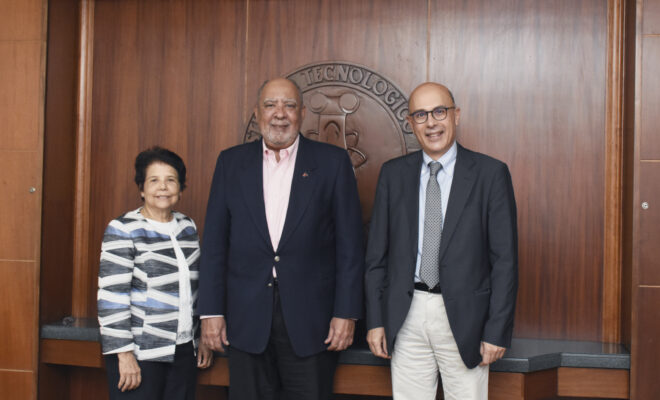New convention will address poor intra-regional mobility / University World News

During the International Conference of States in July in Buenos Aires, Argentina, the Latin American and the Caribbean region adopted a new convention on the recognition of studies, diplomas and degrees in higher education. Similar to the Tokyo, Addis and Lisbon recognition conventions, this is called the Buenos Aires recognition convention and it will enter into force after four national ratifications.
The International Conference of States was organised by UNESCO and hosted by the Government of Argentina in Buenos Aires, with 24 member states and 15 observers participating.
UNESCO’s International Institute for Higher Education in Latin America and the Caribbean (UNESCO-IESALC) in Caracas, Venezuela, will serve as the secretariat for the new regional convention. Comprehensive agreements of this kind are important instruments for tying educational systems more closely together in Latin America and the Caribbean.
Latin America and the Caribbean can be described as one of the least attractive international destinations for student mobility.
In addition, a recent study by UNESCO-IESALC shows that of the 312,000 students who left a Latin American and Caribbean country to study, only 120,000 went to study in another country in Latin America and the Caribbean.
The fact that only 38% of the mobility in the region is intra-regional clearly shows the need for a mechanism to increase intra-regional mobility in Latin America and the Caribbean.
Strong regional cooperation is a necessity for building strong and robust higher education systems in a global knowledge society that knows no borders. Recognition agreements provide opportunities for academic exchange and for students to move between countries by easing access into universities abroad.
Comparability of education between countries is vital on a continent with a mobile workforce and student mass. The implementation of the convention will enable the holder of a qualification from another country in the region that is party to the convention the right to have their qualifications assessed in a fair, transparent and non-discriminatory way.
Adoption is only the first step
After adoption, the work on implementing the agreement begins. First, the convention must be ratified and legally implemented in the Latin American and Caribbean states. However, as experience from Europe and other regions show, legal implementation is no guarantee of satisfactory practice.
Credential evaluators will need training in the new practices and procedures in order for the new standards to become a reality ‘on the ground’. Even in Europe, 22 years past adoption, the Lisbon recognition convention has not yet been fully implemented.
The Bologna Process Policy Implementation Report, published ahead of the Ministerial Conference in Paris in May 2018, found that the fundamental principles were not applied in all signatory countries.
Mutual trust and understanding of educational systems and standards are essential to any recognition agreement’s success. Hence, credential evaluators should have ongoing dialogue with their peers in other countries and at other institutions. Ideally, this should also include face-to-face meetings.
NOKUT (the Norwegian ENIC-NARIC) has first-hand experience in successful collaboration in capacity building between European and Latin American countries.
The project RecoLATIN is an ongoing Erasmus+ project, led by the University of Bologna. On the European side, the project has participation from the Conference of Italian University Rectors and ENIC-NARIC national information centres and national recognition offices in France, Italy and Norway.
Participating European universities include Université Paris Descartes in France and the University of Stavanger in Norway.
On the Latin American side, the project has participation from ministries and higher education institutions in Panama, Uruguay and Mexico, including the Universidad Nacional Autónoma de México.
The main aim of the project is to bring together higher education staff and credential evaluators from both regions to define common practices and to create common tools to increase and favour mobility through peer learning activities.
The trust and mutual understanding built through this project are key factors for successfully reaching shared goals in the field of recognition in line with the principles of the new convention. Projects of this kind thus provide useful input for countries covered by the convention.
Venezuela
In light of the current situation in Venezuela and bordering countries, it is timely that the recognition of refugees’ qualifications is addressed as an obligation in the new convention.
Forced cross-border migration poses a challenge to recognition of qualifications. Refugees and persons in a refugee-like situation oftentimes lack documentation of qualifications. To account for this, states need to put in place special procedures that enable recognition officers to recognise previous learning and work experience.
The ongoing effort to establish a UNESCO Qualifications Passport for Refugees and Vulnerable Migrants is in line with this obligation.
Transparency and accountability of diplomas and degrees are inherently connected to frameworks of binding international recognition agreements. In this respect, the new Buenos Aires recognition convention is also important for the upcoming global recognition convention which will be up for adoption at UNESCO’s General Conference in November 2019.
The combination of the two conventions is likely to fuel the implementation of fair, transparent and non-discriminatory recognition practices in the region. From the European side we congratulate the Latin American and Caribbean region with regard to the convention and we look forward to working together on recognition of qualifications.
Stig Arne Skjerven is director of foreign education at the Norwegian Agency for Quality Assurance in Education or NOKUT (Norwegian ENIC-NARIC) and president of the ENIC bureau – European Network of Information Centres. He was a member of UNESCO’s drafting committee of the Global Convention on the Recognition of Higher Education Qualifications. Helge Schwitters is a student, advisor at NOKUT (Norwegian ENIC-NARIC) and former president of the European Students’ Union.
Read the article on University World News
RELATED ITEMS








